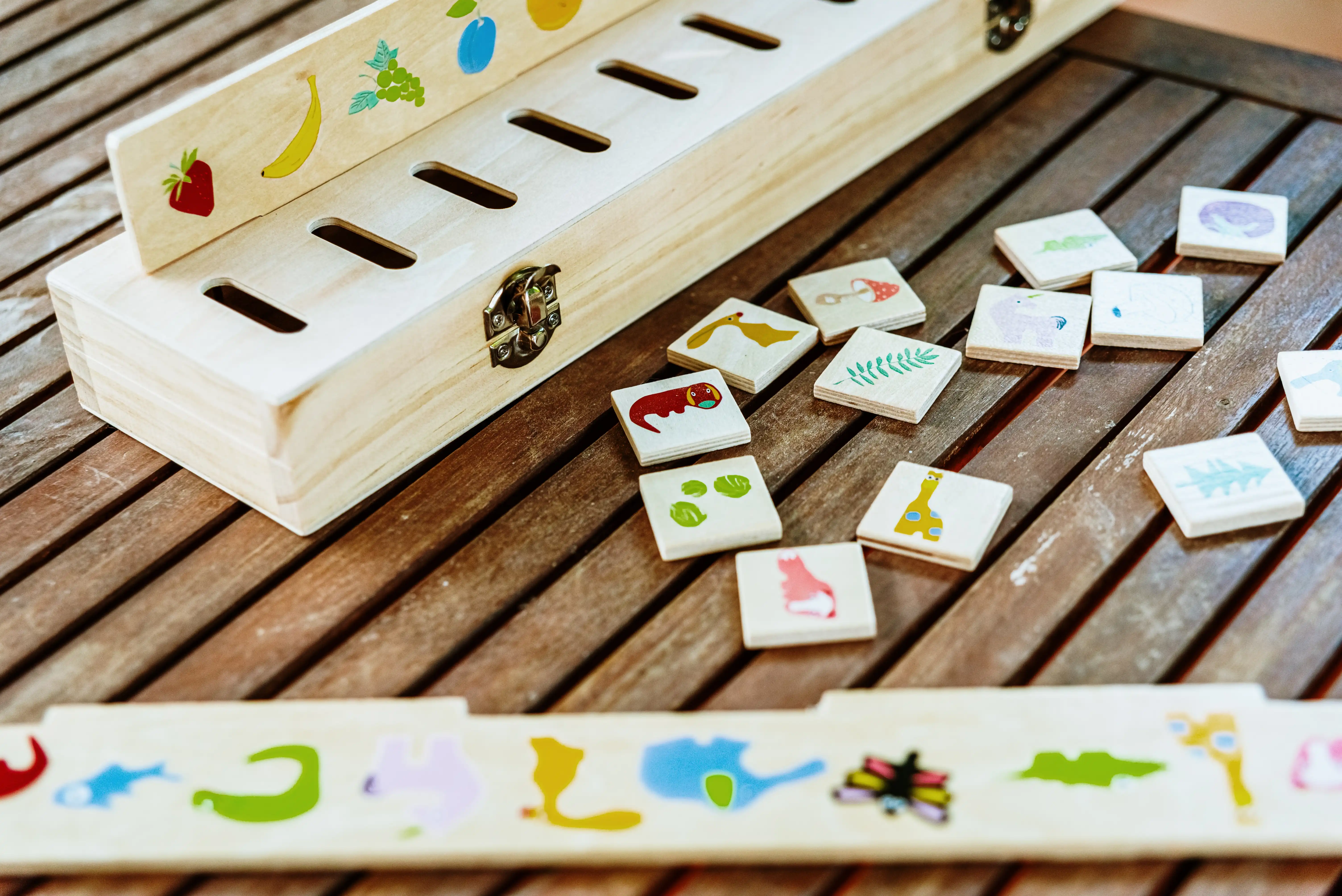Math Card Games: Educational and Engaging Pastimes
Math card games combine play and practice in a simple format. These activities help kids work on counting, operations, and number sense while strengthening focus, memory, and turn-taking.
Table of contents

Math card games to build number skills through play
Learning math is one of the significant milestones in a child’s development. This competency opens doors to comprehending numbers and how to deal with them. Once they gain basic knowledge, they’ll need more engaging activities to expand their abilities.
Playing math card games is a fantastic way to take a break from textbook exercises and have fun with hands-on activities. In this article, we’ll discuss how to spend quality time engaging in cards to help your child perceive math as an inspiring and entertaining adventure.
Introduction to Math Games with Cards
Card games appeared in Europe around the 1300s and became a favorite pastime for many people. A simple set of cards can provide numerous benefits to kids’ development. How? You can use them to play countless math games! This classic pastime presents a fantastic tool for your little one to practice math skills and have fun with friends or a family circle.
The Importance of Math Card Games for Kids
For any math card game, you’ll need a simple card set that provides many learning opportunities. They can help your child train in number recognition, addition, subtraction, multiplication, and division. By engaging in card games, kids can develop life-navigation abilities, like staying sharp, working through difficulties, and foreseeing and preparing for whatever comes their way. Moreover, card activities can help shy and introverted individuals practice their social skills.

Help your child
grow with Keiki
We’ll help you turn everyday screen time
into real learning progress.
Games to Play with a Deck of Cards: Simple Addition and Subtraction Card Games
Mastering addition and subtraction is one of the basic math skills. Using cards can support their training, providing an educational and fun way of learning. The following collection of kid-friendly math games with playing cards offers familiar favorites and new puzzles.
1. Match to Make 11
The game is simple: play out cards and try to find pairs that add up to 11. The participants take turns picking cards to see whether they make 11 together. If they do, players put those cards aside and bring two new ones. If not, the cards are returned to the deck; the opponent takes turns to match the next cards. The winner is the one with the most pairs.
2. Race to 100
It’s a simple, cool game for two or more players. The goal is to come out the first to reach 100 points without exceeding this number. To start, lay out the cards facing down. Take turns to take them. Number cards equate to their value on the top. Face cards equate to 10 points. Aces may be worth from 1 or 11 points; you decide.
3. Flip and Add/Subtract
This is one of the fast-paced math games with a deck of cards that focuses on training quick thinking, which is essential in math. Take a deck of cards, excluding those with faces. Each participant flips a card. If it’s red, they add 1 to their score and announce the result; if it’s black, they must remove 1 from their total. If the answer is correct, they can keep the card to themselves.
4. Calculate the Gain or Loss
You’ll need a piece of paper for a more organized play. At the preparation stage, remove face cards or give them values. Each participant starts the game with 15 points. Each flips a card. If it’s black, they add the card’s points to their total; if it’s red, they deduct the points from their score.

Engaging Multiplication and Division Card Games
Learning to multiply and divide numbers helps kids navigate everyday tasks necessary for further adult life. These competencies unlock problem-solving skills, valuable for budgeting, cooking, planning trips, etc. Here you are with games with a deck of cards to develop and sharpen these significant abilities in a fun way.
5. Card Turnover and Multiply
This game can be played in school settings to encourage teamwork and discussions, requiring several pairs for fun interaction. Each participant flips two cards from the set. The first person to correctly multiply the given numbers wins and takes both cards; if the answer isn’t correct, the cards are returned to the deck. The action continues until all the cards are used. Those players who collect the most pairs by the end win.
6. Order of Operations Challenge
Players are given cards to solve the equation with the correct sequence of operations. It is perfect for spending time with the entire family, as even adults will find this tricky. Each participant is dealt four cards to apply order-of-operations rules. You get points for correct answers, while failures offer excellent opportunities to learn from mistakes.
7. Hit the Target
In this game, face cards equal 10. Aces can equate to 1 or 11; decide this beforehand. The goal is simple: you must use at least 2 of the 5 cards each round to equal the goal number.
Lay out the cards facing up. Flip the card, which will be the target number card for that round. To reach the goal number, participants can add, deduct, multiply, or divide cards from the five cards on hand. All the cards used in their equation are handed over to the solver, including the one with the target number. Players continue to take turns until no more than six cards remain. The one who collects the most cards at the end wins.
8. Multiplication Madness
There are several variants of playing multiplication card games. For this one, you’ll need a deck of cards, excluding those with faces. This game requires 3 or more participants. To start, decide who will take the role of a card dealer. Once everything is set up, the game’s host begins to lay down 2 cards, and each participant needs to multiply those numbers quickly and accurately. If the answer is correct, they take these cards. The player with the most cards wins the game.
Fun Fraction and Decimal Card Games
Learning arithmetic through hands-on activities is more engaging, especially when it comes to fractions and decimals. Children can comprehend abstract math topics faster while playing with a colorful math card deck.
9. Fraction War
You’ll need a set of cards and a pencil to represent the fraction line. You may also use printable fraction cards. The classic version of this is called simply War, but in this one, each player turns over two cards. They need to form a fraction, deciding on the numerator and denominator. In each pair, opponents must determine who has the bigger fraction using the four cards dealt. The winner takes all the cards, and the one with the most cards at the end wins.
10. Decimal Addition
A simple way to teach and practice decimals is by using money. The goal of this game is to be the first to collect 10 cards that add up to $1.00. Players deal and remove the cards one after the other until the deck is empty or someone collects exactly the target sum. The participant with the most points after 10 rounds wins.
11. Fraction Bingo
To start playing Fraction Bingo with regular cards, you must remove the face cards first. Then, create bingo cards with fractions on them. Shuffle the deck, then pick and declare fractions with card values as numerators and a fixed or random denominator. Players indicate those numbers on their bingo cards. The first participant to complete a row, column, or diagonal screams, “Bingo!” which means they win.
12. Decimal Challenge
This game is suitable for a few players using a standard deck (no jokers). Each player is given 6 cards and must assemble 2 sets of 3 cards to get the biggest decimal number possible (Aces are equal to 2). The opponents compare their highest totals. The one with the best score comes out on top of the round. After five rounds, the player who wins the most becomes the game’s winner.
Help your child thrive with playful learning
Turn screen time into real growth with Keiki’s educational games.
Try KeikiCreative and Collaborative Math Card Games
With educational card games that foster creativity and social interactions, it’s possible to make learning math fun and engaging. They can also help make learning math less stressful by adding conversation and creativity for a positive math experience.
13. Math Bingo
The host takes out the face cards and assigns 16 cards to each participant. They need to arrange them in a 4×4 grid. Then, the host places the remaining cards (or a fresh set) with their faces down in a pile.
The game begins with the caller selecting a card and announcing it. Players who see that number on their grid flip the corresponding card face down. The game continues until someone has a full row of face-down cards and exclaims, “Bingo!” indicating they’ve made it.
14. Number Sentence Challenge
It’s one of the number card games that requires players to create an equation of the dealt cards using operations like addition, subtraction, multiplication, or division. The action begins with participants flipping 3 cards. If they solve a legitimate equation out of them (such as 8 – 3 = 5), they can keep them. The winner is the one who has the most sets of 3 cards.
15. Math Relay Race
Players are divided into two teams. Each participant picks a card and solves a math problem involving the card’s value, such as adding or multiplying. For instance, if they draw a card whose number is 7, they may need to add/subtract/multiply/divide by the given number (you can tailor this rule beforehand). Then, a player passes the baton to the next teammate. The first team to complete all of their challenges correctly wins.
Educational Value of Math Card Games
Math card games for kids are a fun way to teach mathematical principles, practice problem-solving abilities, and improve mental arithmetic. Children love playing, and by making learning more appealing, they can develop a positive attitude to this subject, simplifying their educational journey.
- Building Basic Math Skills
Playing fun and educational games allows your child to practice math concepts and strengthen their skills at the same time. Cards provide an excellent opportunity to help kids learn with hands-on activities to improve their adding, deducting, multiplying, and diving competencies.
- Enhancing Cognitive Development
Math card games effectively train mathematical skills while enhancing cognitive abilities. They also promote intellectual development, critical thinking, and strategic planning, which are important for life navigation.
- Promoting Interactive Learning
Card games are perfect for fostering participation and collaboration. They encourage children to practice arithmetic concepts, not only by solving problems in textbooks. Students can gain knowledge through interactive activities and discussions, all thanks to a simple deck of cards.
- Encouraging Fun and Engagement
The play element is critical for children to understand virtually everything, especially math concepts. Introducing kids to math card activities gives them an excellent opportunity to improve math comprehension, critical thinking, and memory. This approach makes learning more dynamic and effective than traditional passive ways.

Help your child
grow with Keiki
We’ll help you turn everyday screen time into real learning progress.
Try KeikiKeiki World: Math Card Games for Little Learners
Make doing math exercises a simple and pleasant pastime with the Keiki World app. Perfect for kids aged 1 to 6, the content is all about creating a fun and valuable experience, offering many math games and other features:
- Counting Basics and Logic & Problem-Solving packs focus on training fundamental math skills.
- The app’s mini-games include counting exercises and interactive puzzles, which build key pre-k skills and lay the foundation for comprehending more complex operations.
- With flexible subscription plans, you can easily find the most suitable option to let your child explore the world of a joyful learning experience.
Thanks to interactive and hands-on experience, learning numbers and counting with Keiki resources will be a piece of cake, even for the most junior students. The best part is that games grow with your child, allowing you to tweak the difficulty level to keep things more relatable and challenging. Keiki provides a unique opportunity to help your little one gain math confidence with valuable activities that feel like play.
Conclusion
Math games to play with a deck of cards provide numerous learning opportunities. With a simple card set, you can engage your child in a myriad of activities that nurture and strengthen math knowledge in a fun way!





